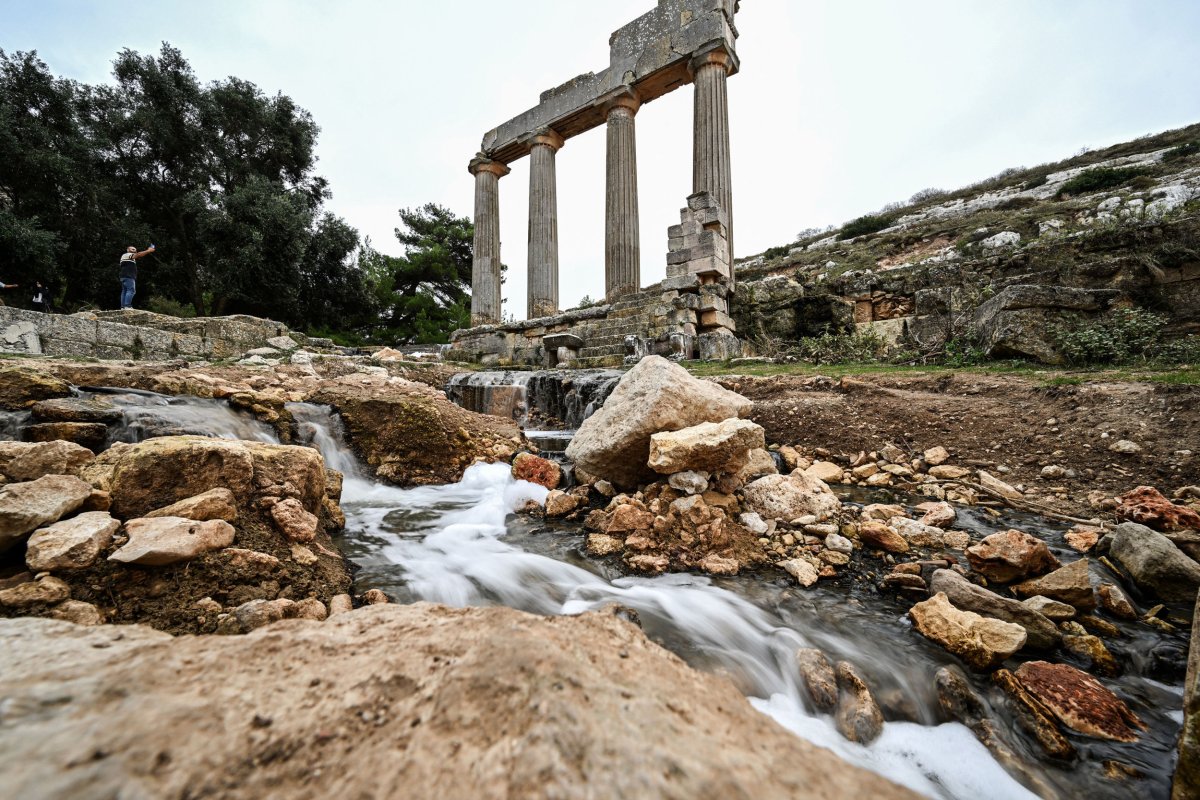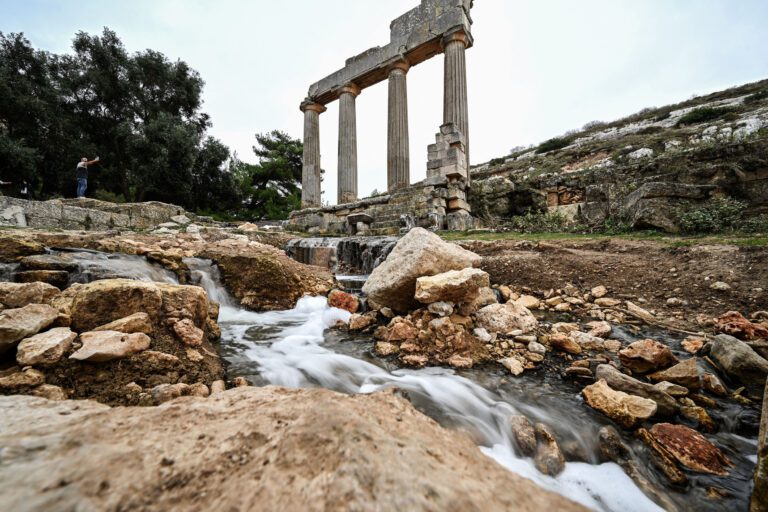Previously hidden structures in an ancient Greek city have been revealed by devastating floods that hit Libya last month.
The structures appeared unexpectedly at the archaeological site of Cyrene, located near the North African country’s Mediterranean coast, the Associated Press reported.
The ancient city was founded in 631 BC by Greek settlers from the island of Thera in the Aegean Sea, a part of the eastern Mediterranean wedged between Greece and Turkey.
Cyrene was one of the most important cities of the ancient Hellenic world and flourished in the 4th century BC. It was later Romanized, remaining an important center until an earthquake struck the settlement in 365 AD.

OZAN KOSE/AFP via Getty Images
The city’s impressive ruins were rediscovered in the 18th century and are now a UNESCO World Heritage Site. Among its most notable monuments are several baths; spectacular temples, shrines and fountains dedicated to Greek gods, such as Zeus, Apollo and Demeter; and a large amphitheater.
Cyrene is close to the modern Libyan city of Derna, which suffered catastrophic flooding in September following torrential rains caused by Storm Daniel.
Rain from the storm caused two dams near Derna to break, causing flooding that left at least 11,000 people dead in the region, with thousands more still missing, and widespread damage to buildings and infrastructure.
After the floods, Libyan authorities arrived in Cyrene to assess the damage and recover the historic remains of the ancient city. It was then that they noticed structures hidden for centuries under layers of earth and debris.
Claudia Gazzini, senior Libya analyst with the nonprofit International Crisis Group, who visited Cyrene after the floods, said: News week that flooding in the ancient city revealed a series of slabs in an area that archaeologists believe to be the cover of a Roman sewer system. Additionally, the floods revealed new walls of Demeter’s sanctuary, Gazzini told an archaeologist.
Ahmed Issa, from the archeology department at Omar Al-Mukhtar University in Libya, said a national committee of experts should be formed to classify new archaeological monuments and develop a restoration plan for the area, a reported the Associated Press.
The immediate damage to Cyrene’s monuments is relatively minor given the extent of flooding in the region, but water circulating around their foundations threatens future collapses, archaeologists say.
“The ruins in the upper part of Cyrene are intact, so that’s good news. But there was damage in four places in other parts of the archaeological site,” Gazzini said.
In an area known as Via Porticate, a Roman wall fell, altering ancient water channels. Local archaeologists say modifying the water channel poses a danger because with future rains, water could flow directly into the channel. Via Porticate directly towards the temple of Apollo below.
Gazzini said that during his visit, water was constantly gushing from the basement of the city’s lower terrace ruins, creating a current of water that snaked through the ruins, creating puddles of dirty water.
“At the time of my visit, local archaeologists did not have an explanation for this new phenomenon,” she said. “I have since spoken to the head of the Libyan archaeological department and he explained to me that they had discovered that the storm had broken the water drainage pipes of the nearby town of Shahat, outside and above of the archaeological park.
“He thinks this excess dirty water ended up in an old spring beneath the ruins, so the added pressure is causing it to rise to the surface in this new location. Nearby, the Fountain of Apollo is also ejecting water. soapy water for the same reason. …Again, archaeologists say the constant flow of water in the ruins is a problem because it could destabilize the base on which the ruins sit.
Other flood damage to the site included stone blocks that broke away from the seating area of the Greek Theater and a landslide that covered part of the necropolis.
Uncommon Knowledge
Newsweek is committed to challenging conventional wisdom and finding connections in the search for common ground.
Newsweek is committed to challenging conventional wisdom and finding connections in the search for common ground.


